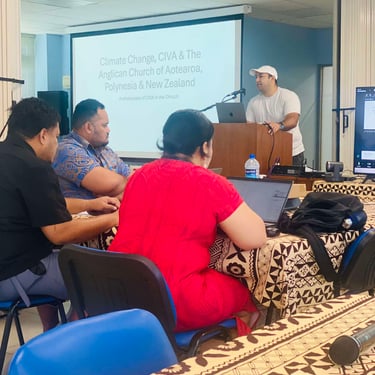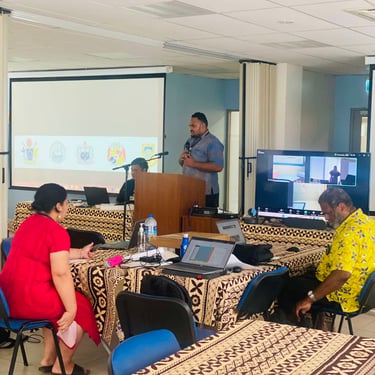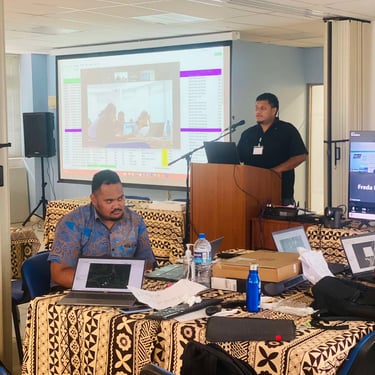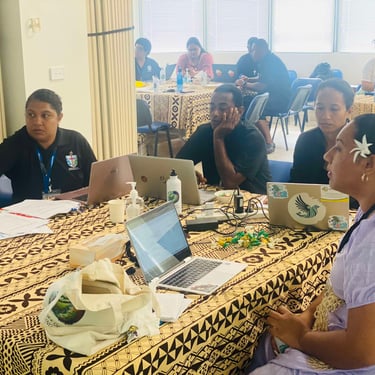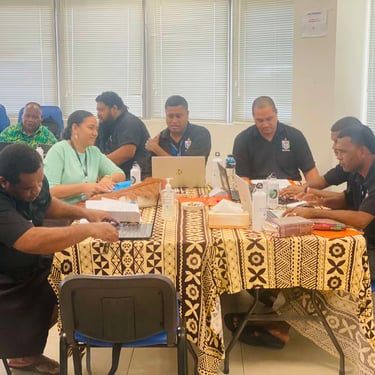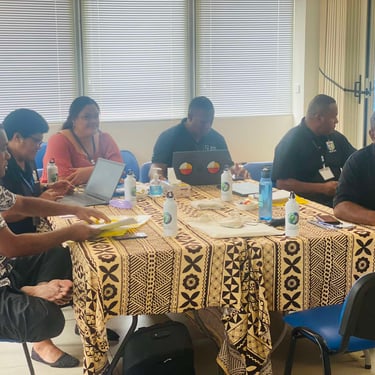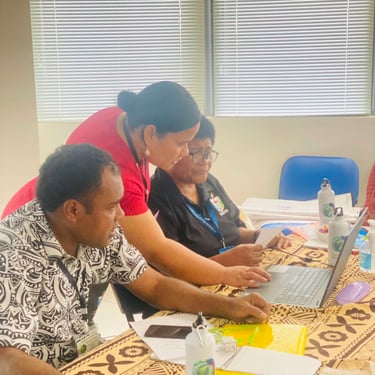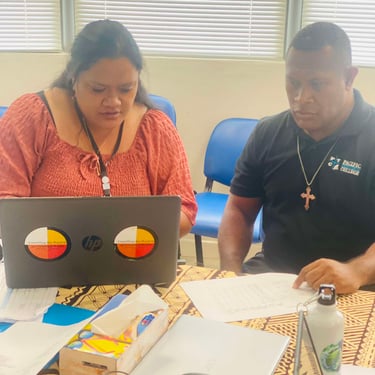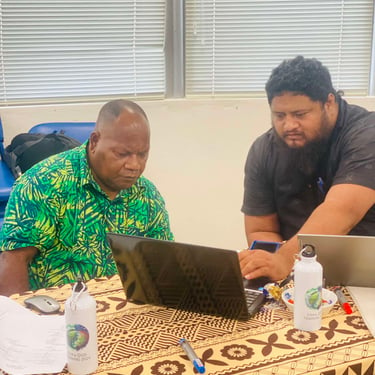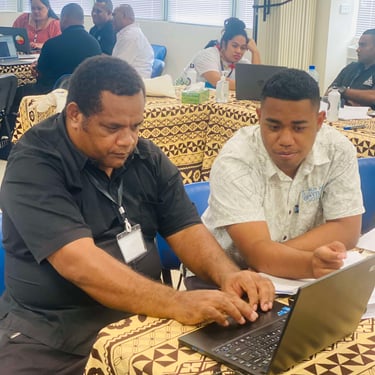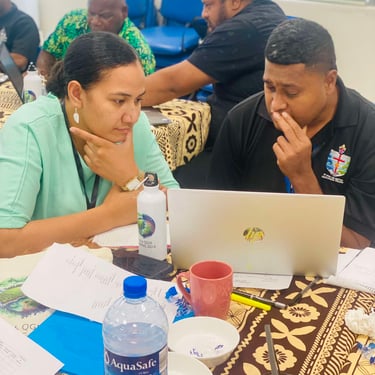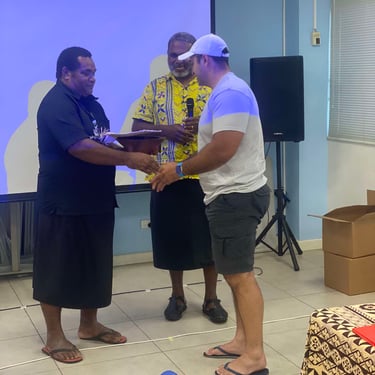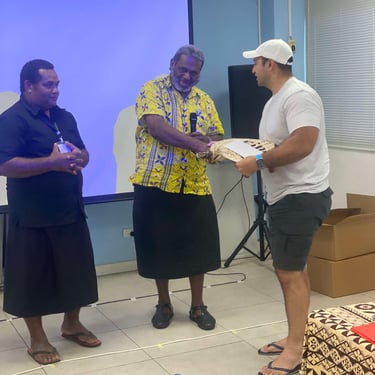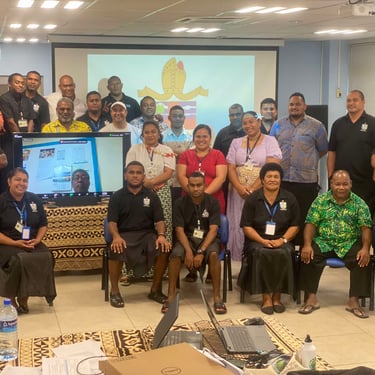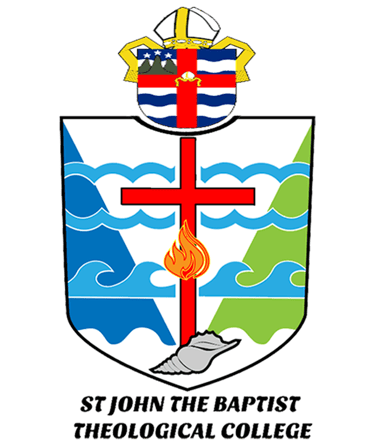Day 4: CIVA and QGIS Training
A Deeper Dive into Climate Action and Vulnerability Mapping
Day 4 of the CIVA and QGIS training opened with a compelling session led by Rev. Canon Isaac Beach, who explored the intersection of climate change, the Church, and CIVA. Drawing on the rich whakapapa (genealogy) of CIVA within the Anglican Church of Aotearoa, New Zealand, and Polynesia, Rev. Beech traced the Church’s evolving engagement with climate action. His presentation highlighted the Church’s unique position in addressing climate resilience, emphasizing that its commitment is deeply rooted in its mission to care for creation and its people.
The second session shifted focus to vulnerability mapping and the integration of CIVA with QGIS. Building on the morning’s discussions, participants delved into practical applications of these tools. They began by recalling community narratives and scorecards from previous sessions. These qualitative and quantitative insights were then linked to geographical data, enabling the creation of community maps that visualized vulnerabilities.
Using QGIS, participants were introduced to plot key data points, such as flood-prone areas, evacuation routes, and essential infrastructure. This exercise illustrated how mapping can transform abstract data into actionable insights. By overlaying narratives onto maps, communities can better understand their vulnerabilities and prioritize interventions.
The session also emphasized the importance of storytelling in mapping. Each map is more than a collection of data; it represents the lived experiences of people. As participants worked through their exercises, they were reminded that these maps would become tools for advocacy, planning, and resilience-building within their parishes.
The Church’s role in climate action is not merely theoretical; it is a practical and urgent mission. Through tools like CIVA and QGIS, the Church can empower communities to face the challenges of climate change with confidence and hope. As the training progresses, participants are increasingly equipped to lead this transformative work, ensuring the Church remains a beacon of resilience and care in an ever-changing world.
The day concluded on a high note with a gesture of gratitude. In appreciation of Rev. Canon Isaac Beach’s invaluable contribution to the training, a gift was presented to him as a token of thanks. This moment symbolized the participants' deep respect and gratitude for his leadership and insight, greatly enriching their understanding of the Church’s role in climate action.
